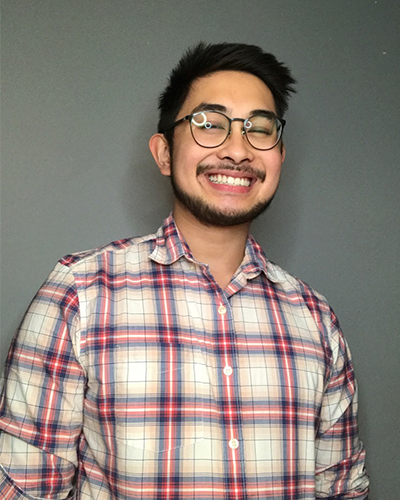Student Spotlight: Lance Javier
Global Undergraduate Awards 2023 Winner
Regional Winner: Earth & Environmental Sciences

The Global Undergraduate Awards recently announced the winning submissions for 2023, which include the following from Western: three Global Winners, three Regional Winners and 23 Highly Commended.
Meet Lance Javier, BSc’23, Regional Winner (best submission in the US and Canada) in the category of Earth & Environmental Sciences
- Currently pursuing a master’s degree in agriculture at the University of Guelph
- Paper Title: Growing Concerns: The Interactive Effects of Soil Copper and Microplastics on Soybeans
Can you provide a summary of your research?
I investigated the growth of soybeans in the presence of polyethylene terephthalate (PET) microplastics and copper. We grew soybeans inside a growth chamber and then subjected the soybeans to different treatments, spiking the soil with microplastics, or copper, or a combination of both. We wanted to see how the growth of the soybean would respond to the different treatments. I wanted to investigate the effect on the soybeans if the copper and the microplastics were in the soil together, versus if it was just the copper by itself or the microplastics by itself affecting the soybean.
What we found was that copper and microplastics together actually stimulated the growth of the soybean roots, which was very interesting and somewhat unexpected.
What motivated you to pursue this type of research?
I love plants and I’ve done a lot of coursework in ecology. I chose this particular topic because I wanted to help shine a spotlight on the topic of microplastics. In general, though, my being in this field in the first place was because I read the news and I see that there's a lot of people that are hungry or are unable to produce crops properly. I want to research techniques in agriculture that can be used for crop management, or different ways that you can grow your plants in order to make your farms more sustainable and more resilient to the effects of climate change. Someday, I would also like to be able to disseminate that knowledge and research that I've done to other places of the world that might be less fortunate than us.
Have you always been interested in science?
I've always loved science since I was a kid. When I first came to Western, I didn't know exactly what kind of scientist I wanted to be. I chose biology because I love studying the life that surrounds us.
What do you hope to do in the future? What impact would you like to make?
I’m doing my master’s degree now and I might really consider doing a PhD because I love research. I love the idea of contributing knowledge that can potentially help the world. There's a lot going on that we need to address in terms of environmental sustainability, climate change and pollution. And then there are also issues related to conservation, the implications of agriculture and a shifting diet that we have to adopt in order to help combat climate change.
In my opinion, the role of scientists should be to focus on making the world a better place in general, with less emphasis on profit and more on spreading knowledge to other people. My hope is to be able to offer research and solutions that will help people who need it.
> Read more about Western students honoured by the Global Undergraduate Awards

